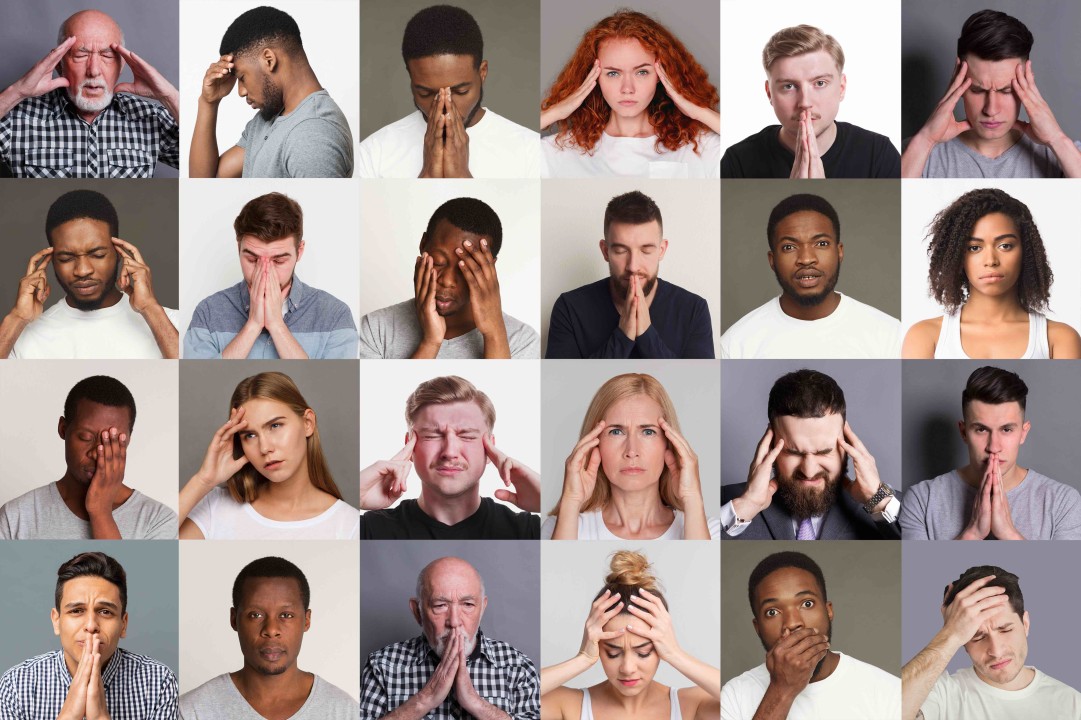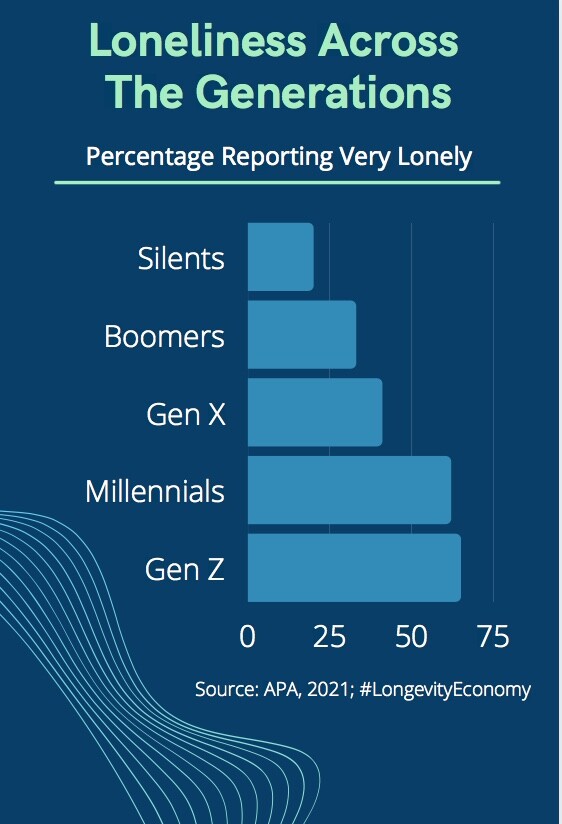How Stress Affects Each Generation Today & Why It Matters More Tomorrow

Stress. It gets a bad rap, but we need stress. Too little stress we disengage, too much, we break.
You want your surgeon a little stressed so they fully engage every one of their skilled neurons. Speakers who are not at least a stressed are likely to put their audiences to sleep. Athletes speak of ‘being in the zone’ – just the right amount of stress to perform their best.
Stress has another face, the better-known side of stress. When we have too many demands (stressors) we can’t perform at our best. Too much stress leads to declines in our mental, emotional, and physical wellbeing. Prolonged stress leads to sustained unhealthy behaviors, e.g., increased alcohol consumption, loss of sleep, poor diet habits.
The American Psychological Association (APA) recently released its annual survey of Stress in America. The data indicates what you already knew – as COVID-19 put a chokehold on life in 2020 we became more stressed. Stress, however, during the pandemic did not affect all of us equally. Stress affected the old, the young, and all the generations in between differently.

Overwhelmingly, younger cohorts reported higher levels of stress and stress-related effects. Somewhat paradoxically older adults, who may have been the most physically vulnerable to the pandemic’s wrath, reported less stress than Americans in their late teens and 20s. Nearly half (46%) of Gen Z, ages 18-24, reported that their mental health worsened during the pandemic compared to 2019. In contrast, a decline in overall mental health was less with each successive older generation. In fact, only 9% of the oldest generation, the Silents, ages 76 years old and older, reported worsened mental health.
Americans also reported inordinate weight change (gain or loss), since the pandemic began. The results skewed by age. The younger the cohort, the more likely they were to report gaining or losing weight. Nearly 3 out of 4 Gen Z’ers reported experiencing weight change compared to less than 1 in 3 older adults.
While loneliness and social isolation hit the public agenda long before the pandemic, the global loneliness crisis was amplified by COVID-19. Two years before the pandemic, the United Kingdom established a Ministry of Loneliness. Discussions of loneliness have typically focused on older adults, particularly those living alone and isolated. However, the APA survey showed that young people are also highly vulnerable to feelings of loneliness. The most digitally connected among us, teens and those in their early 20s, seemingly glued to their devices reported the highest feelings of loneliness.

Perhaps most striking were data that suggested that all generations felt that they could have used more emotional support during the pandemic. Gen Z was four times more likely than older adults (Silents) to report that they could have used more emotional help. The pandemic demonstrated that older adults did not show the levels of stress-related attitudes or behaviors that might be assumed to be commensurate with being in the crosshairs of an existential threat. Instead, younger people, who, by all accounts, were far more physically capable of surviving COVID-19 consistently reported higher levels of stress.
It would be easy to end the narrative here, but experiences have consequences.
[Geek jargon alert!] ‘Cohort theory’ suggests that a generation is not simply defined by the years people were born, but by the events, social and economic conditions, politics, fashion, and societal norms they experienced as they moved from adolescence into young adulthood. A generation therefore is a group of people that have shared experiences that, in part, shape their worldview in later life. Certainly these views can change with education, later events, and evolving preferences, but the theory suggests that this period of life and its experiences are the base point for each generation.

We credit the greatest generation with being incredible savers because of their experience during the Great Depression and WWII. We often claim the downward slide in public trust led by the Baby Boomers was due to their witnessing of the Kennedy assassination, the Vietnam War, and Watergate during their formative young adult years. How often do pundits suggest that 9/11, or the great recession, shaped the attitudes of today’s older Millennials and young Gen X’ers?
What will be the impact of the pandemic on Gen Z and younger Millennials?
Similar to the WWII generation, will they become more resilient as a result of the year-plus boot camp that the pandemic forced upon all of us? Is it possible that as the world comes out of the pandemic, people reconnect, the economy takes off, and life finds a new normal that older teens and young adults will have developed an even greater resilience that will be their strength in decades to come?
Or, will they continue a 60-plus year trend of each successive generation having lower levels of trust in other people and major institutions? Will the experiences of the loss of loved ones, cancelled life events, to careers postponed, make them forever wary about the predictability of life? Moreover, will their report that they felt four times more likely than older adults to believe they could have used more emotional support be a scar that reminds them that society let them down when they needed help?
The implications of both scenarios are broad and lasting. COVID-19’s impact on those in their teens and 20s will not be truly known for decades.
What do you think? Click on this brief survey and tell me what you believe the impact of the pandemic will be on tomorrow’s Gen Z’ers and young Millennials – and what difference you think it makes for them, society, and business.